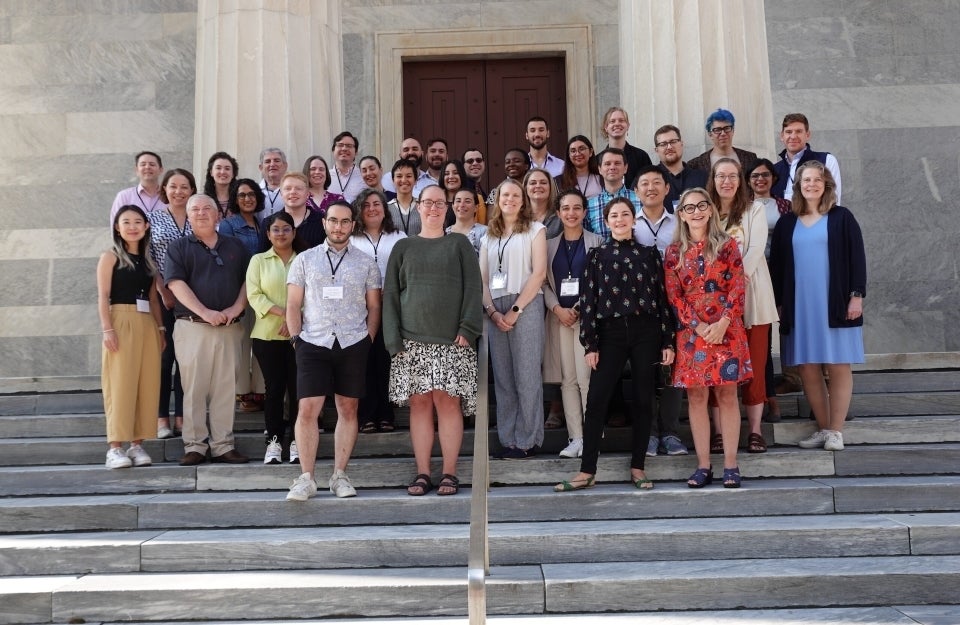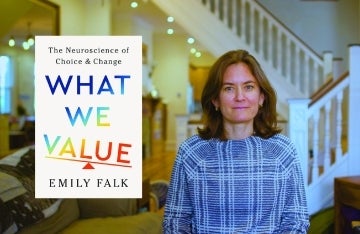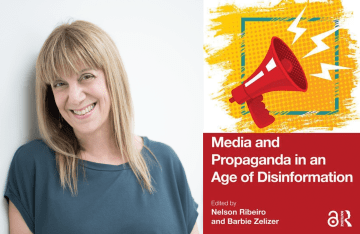“Community for Rigor” Initiative Raises the Bar in Scientific Rigor Through Interdisciplinary Collaboration
Professor Damon Centola is a scientific advisor for the Community for Rigor project, which creates educational materials to teach core concepts in scientific rigor.

The C4R team hosted its first annual meeting in September (Photo: Penn Engineering)
Rigor in how science is done and how results are analyzed and communicated is essential for science to be useful in the real world. Without it, significant results become meaningless, and trust in the scientific community diminishes. Also, a lack of rigor not only increases the spread of misinformation, but it can severely damage systems that people rely on to make informed decisions.
To uphold a high standard across disciplines, a group of scientists from institutions across the U.S., including the University of Pennsylvania, has come together to create Community for Rigor (C4R), an effort to develop free, online, and open educational resources.
This fall, C4R debuts its curriculum focused on topics of scientific rigor, such as good experimental design, proper statistical analysis, and more.
Improving Research
C4R was founded in 2022, thanks to support from the Initiative to Improve Education in the Principles of Rigorous Research, a grant program of the National Institutes of Health’s (NIH) National Institute of Neurological Disorders and Stroke (NINDS),
The specific grant, “Creating an Educational Nexus for Training in Experimental Rigor,” is led by PIK Professor Konrad Kording and includes a collaborative community of faculty and researchers from ten institutions, bringing together a diverse set of research expertise. “There are many steps to the scientific method, and problems occur at every step,” says Kording. “We all need to work together to improve how we step through the method — we need to work towards a culture of improving science.”

Elihu Katz Professor of Communication, Sociology, and Engineering Damon Centola, director of the Network Dynamics Group, is a scientific advisor for C4R and uses his research expertise in social networks and behavioral change in his role.
“I am always looking to improve the rigor of the methods used in the social sciences,” says Centola. “I spend years setting up each experiment to ensure my data is not biased and represents a realistic demographic relevant to my research question. To ensure replication, I run multiple independent experimental studies with unique groups to identify whether the collective dynamics observed in one group are reproduced across independent populations. These methods generate results that have concrete implications for real-world problems. I train all my students in this mindset to help future scientists pursue the development of new, increasingly rigorous methods.”
Centola is using his research on networks to inform C4R and integrate a new standard of scientific rigor into the culture of the entire scientific community.
“Movements and societal norms manifest once they reach a tipping point that allows information to spread and integrate into our culture,” he says. “My work aims to identify what kind of network structure facilitates a change in the way that information is used in society. I’m helping C4R develop that network structure to reshape the culture of scientific rigor within university research centers.”
Meeting of the Minds
In September, Centola and other members of C4R gathered to discuss their research and how they planned to integrate it into C4R’s mission at their first annual meeting.
“Our first annual meeting was successful,” says Carolina Garcia, Community Engagement and Communications Lead at C4R. “We hosted over fifty experts, students, and collaborators from more than twenty institutions across the U.S., and held workshop sessions to test our educational materials, panel discussions about culture and behavior change, as well as firsthand accounts of graduate students’ experiences, and networking and community-building activities. We’re looking forward to expanding our annual meeting each year to become the world’s main scientific rigor gathering, the Community for Rigor Conference.”
Visit the C4R website to contribute ideas, access free materials, and join the community.
A version of this story was originally posted on the Penn Engineering Blog.



